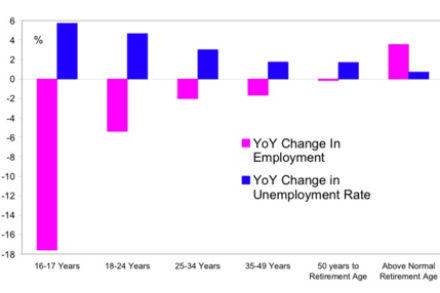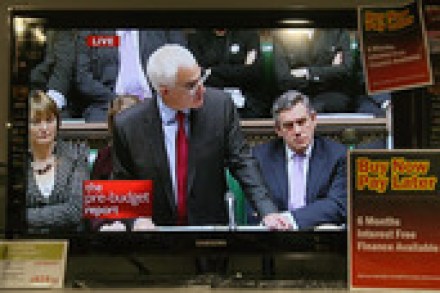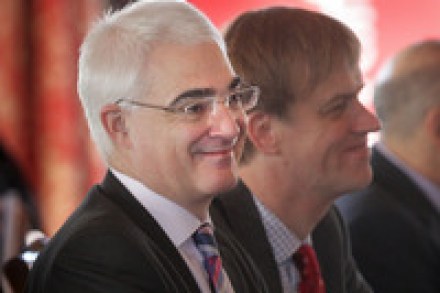Brown’s children
Why is this recession so cruel to the young? The unemployment figures – now up to 2.44 million – are bad enough. It’s the largest single quarterly drop since data began in 1971. But look deeper and there’s a striking disparity amongst the age groups. The under-18s – school leavers – are hit the most, with their employment numbers down 17% year-on-year. The 18-24 year olds are next worst hit. But there is actually a rise in pension-aged people returning to work. The bottom line: unemployment amongst the under-25s is a third higher than when Labour came to power. CoffeeHousers may remember how full of pious anger Gordon Brown was




















